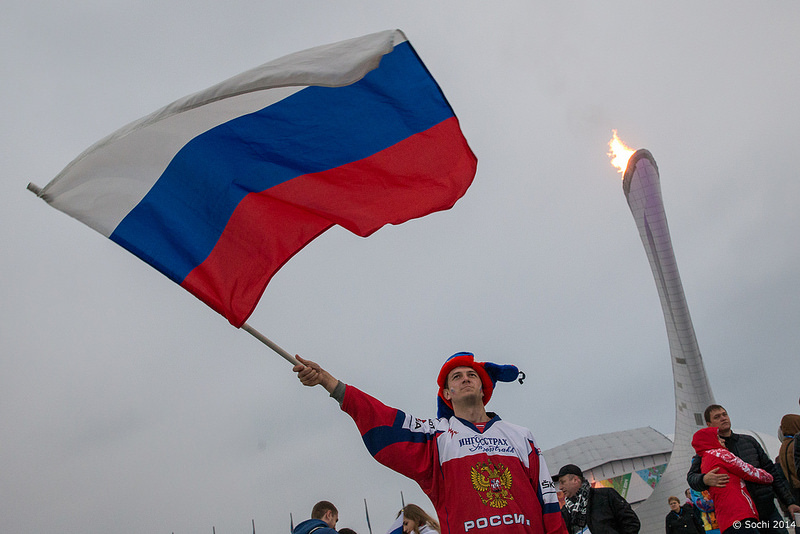
Sochi 2014 Winter Games, a $50-billion party. // Photo: Sochi 2014 Flickr
The economics of hosting the Olympics, a good party and a bad hangover
Like people, some countries just like to entertain. It spurs them to tidy up the house. But dinner parties are easy and cheap compared to the Olympic Games.
We asked Ian Hudson, an associate professor in the department of economics, to tell us the economics arguments for, and against, hosting the Olympic Games. Here’s an excerpt from that conversation.
Hudson: Expenses on the Sochi Olympics are estimated at somewhere around $50 billion. Big events like the FIFA world cup and the Olympics are unbelievably expensive ways to have a good time for a short time. When the winter Olympics were in Vancouver, people loved it. It was the biggest two week street party that Canada has ever seen. But it cost them a lot of money.
There are two very different kinds of costs that go into putting on an event like the Olympics or the World Cup. Part of the money goes to infrastructure improvements like roads and public transportation. So, Vancouver has a fancy new sky train from the airport to downtown ($2 billion) and they widened the sea to sky highway to Whistler ($600 million). Because this kind of spending is not seen as being event specific, usually when the cost of the Olympics is calculated those types of infrastructure spending are not counted – because it’s infrastructure and it lasts.
The other kind of spending is event specific, most obviously, the various facilities needed to host the Olympics. So, in the winter Olympics, you need a huge speed skating oval with tons of seats that no one is ever going to sit in again. So you end up with overly grandiose sports facilities, which are good for the elite athletes but they are far beyond what you would use in any other context. These costs tend to be inflated because of the pressure to not just build a facility but have something that is in some way architecturally significant, like China’s “bird nest” stadium for the 2012 summer games or Sochi’s Bolshoy Ice Dome. In addition to the infrastructure, the day-to-day running of the games is costly. So, security, for example, is unbelievably expensive (around $1 billion for the Vancouver games) and after the Olympics are over you’re not even left with an over-sized sporting facility. With these kind of expenses, it’s very difficult to make back the money you spend on the Olympics, although the organizing committees do attempt to make money back through corporate sponsorships.
Has anyone ever made money?
Hudson: The revolution in Olympic hosting was Los Angeles 1984. The way that they made the money (in addition to the usual ticket sales), which some people found problematic, is that corporations paid for the construction of the new facilities, so it was essentially a corporate games. So the swimming stadium was paid for by MacDonalds. This was the model for a while, but after Atlanta put on what became known as the CocaCola Olympics in 1996, it was seen as being a bit crassly commercial. So there was a bit of a step back in terms corporate naming rights and that of course limits the amount of money these events can make.
So from an economist’s perspective, the Olympics is a don’t-go-there item?
Hudson: It’s not don’t-even-go-there. You can think of the different levels of benefits. When we say it’s impossible to make money, what that means is for the Olympic organization itself, the costs and benefits of the Olympics, are not going to likely put you in the black.
But you can think of a whole host of other benefits that can go to the city that are much broader than just the revenue that the can be generated by the games themselves through ticket sales and naming rights. So, for example, lots of tourists are going to come in and spend money and you are going to get tons of free advertising on every major network in the world. Now you know where Sochi is where perhaps before you did not. You could potentially get a whole host of benefits that may accrue over time from that free advertising and good will. Now that’s dependent on putting on a good event. If the games are marred by corruption, pollution or traffic problems, than maybe it doesn’t work out. But if you run a smooth and efficient, gorgeous looking event, it might be possibly lead to an increase in tourism, or even increased immigration or investment. The problem with that is economists have done a ton of studies on this and it doesn’t. You can calculate the amount of free advertising you get – and it’s a lot — but that free advertising doesn’t seem to pan out in increased visits or more economic activity in the decade following. So those broader benefits don’t materialize.
Perhaps the best case scenario for a successful event was the 2006 World Cup in Germany. It went off without a hitch. Stadiums were packed. Everyone loved the transportation. There is an international survey that asks people how favourably they think of different countries. Apparently the world felt much more positively about Germany after the World Cup than they did before it. So if that international good will is worth anything, well then maybe that’s a broader benefit. But it didn’t pan out in terms of increased visits or anything material.
So what an economist would say is, ‘Is the expense you’ll have from the games, worth the enjoyment of the people themselves? Is it worth it to have a big, big party for two weeks?’ So that’s what it comes down to. It’s usually justified in terms of economic benefits, but this is glorious, massive short term consumption, not a long term investment.
For more Olympic stories, click here.







